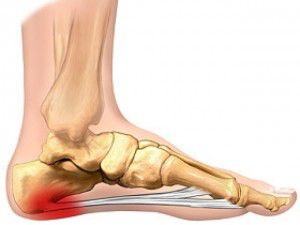Heel Pain Treatment Sydney CBD
Get Lasting Relief from Heel Pain with Effective Treatment in Sydney CBD
- It is a very common problem and is debilitating.
- There is a lot of confusion and so called “miracle treatments”. Heel pain needs a correct diagnosis before embarking upon treatment.
- Heel pain resolves organically in 95% of cases; BUT it can take 12-24months –so best advice is to intervene with correct shoes, exercises and possibly orthotics-foot supports
Plantar Fasciitis - Heel Pain
Heel pain is generally termed Plantar Fasciitis or Plantar Fasciosis. This is a very generic term. Heel pain can be more complicated and needs a correct diagnosis before embarking upon treatment.
Recommendation: At the clinic, you will receive a diagnosis and management plan at your first consultation. 95% of cases resolve with time but with a treatment plan you will get better. The practice uses evidence-based science to treat your heel pain. We regularly liaise with radiologists, foot orthopaedic surgeons, physiotherapists and sports physicians that we can “workshop” your case if it is an atypical case of heel pain.

What is the difference between Plantar Fasciitis & a bruised heel or heel bursitis?
Bruised Heel
A bruised heel is an injury to the fat pad that protects the heel bone. It is sometimes called “policeman’s heel”.
The cause:
- Repeated force of your foot striking the ground, such as running or jumping.
- Commonly seen in basketball, netball and AFL.
- It can also happen from a single injury, such as jumping from a big height onto your heel.
- A bruised heel can take a long time to heel especially if the bone is bruised.
We have a range of interventions to help de-load the heel. Bring the shoes you regularly wear for sport so we can check them for suitability and ensure they are providing cushioning.

Heel bursitis
Retrocalcaneal bursitis happens when the bursae around your heel become inflamed.
A bursae is a fluid-filled sacs that form around your joints. The bursae at your heel bone can be either under the heel or at the back of the heel behind your Achilles tendon.
The best way to manage it is to wear cushioned heel cups, comfortable shoes and use topical anit-inflammatory gels judiciously. If that does not help make an appointment and let our podiatry team make a proper diagnosis and implement a treatment solution.

